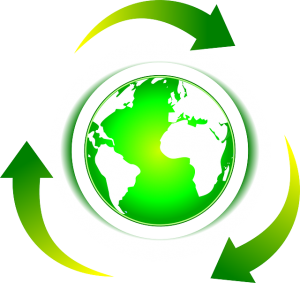Uma asks…I actually bought a Rustic Art shampoo that claims to be all natural , does not test on animals , is pH balanced, no sulphates, great for the environment and all those good things. I was skeptical as I thought since its so good it wont lather and might just clean my hair and wont be like using silicones and stuff…I didn’t mind as I wanted a natural shampoo. To my surprise, it lathered really well…just needed a small amount too for the lather! Also my hair felt real soft by the end of the wash which I never felt from other shampoos till I used a conditioner…I am really hooked to this and now I am skeptical if this is really using all natural ingredients….sorry I am being skeptical but your inputs would help! I probably should just be happy with the find and stay quiet.
No need to apologize, Uma, we’re all about healthy skepticism here at the Beauty Brains! The trouble with answering a question such as this one, though, is that there is no standard definition of a natural for beauty products. But we’ll see what we can do based on looking at the ingredients.
Rustic Art shampoo ingredients
Demineralized water, Cocamidopropyl Betaine (coconut oil extract), Ascorbic acid, Disodium cocoamphodiacetate, Hydrolised Wheat protein, Aloe Vera Juice, Sodium Cocoyl (?) essential oil Blend/Herbal oil blend, and AOS, a plant derivative used as surfactant.
Note: the ingredient list we were provided is not complete as it uses partial names and abbreviations.
To make our point of how confusing the question of “natural” is, let’s look at this through the lens of two different definitions and see how the answer changes.
Definition #1: A product is “all natural” if all ingredients are from renewable, non-petroleum resources.
Through this lens this product would be rated very natural because all of the ingredients can be derived from non-petroleum sources. For example the surfactants are coconut-based can be derived from coconut oil. Ascorbic acid can be derived from fruit. The wheat derivative obviously comes from wheat, and so on. Based on this definition this product does seem “all natural.” So, if you like the answer from this definition, you should just stop reading here.
Definition # 2: A product is “all natural” if all ingredients are from renewable, non-petroleum resources AND all chemicals used in the processing of the main ingredients follow the same rule.
Hmmm. This is where it gets tricky. Let’s look at the main ingredient in the formula, cocoamidopropyl betaine (CAPB) as an example. While coconut oil is a nice natural source for the backbone of this ingredient, several “non-natural” chemicals like chloroacetic acid must be used to transform the nutty oil into CAPB.
So you see, you kind of jump down the rabbit hole when trying to pin down the definition of natural. Is it okay if there is only one non-natural ingredient is used to form the product? What about two or three ingredients? What if one of those “unnatural ingredients” is very toxic or damaging to the environment – does that count against the natural-ness of the product? Or does it not matter since the backbone is coconut oil? There is no single right answer for these questions so everyone is left to fend for themselves when it comes to natural definitions. Therefore, using Definition #2 one would be hard-pressed to describe this product as all natural. It gets even more complicated when you start to layer in other factors such as animal testing, biodegradability of ingredients, waste water management, sustainability (remember palm oil) and so on. So now you see how this works. Depending on the parameters of your natural definition you can declare that everything is all natural, nothing is all natural, or it’s somewhere in between.
The Beauty Brains bottom line
Is this product all natural? If you’re cool with Definition #1 and you like the way this makes your hair feel, then I’d say yes.
Image credit: pixabay

